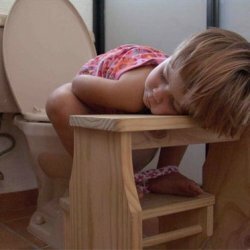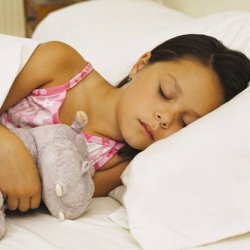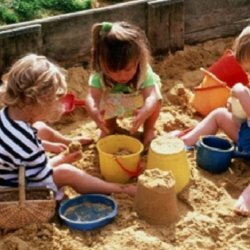Causes of vomiting and diarrhea in children

Each parent, having noticed these two symptoms, should try to find out their cause of occurrence. It is worth noting that, in addition to vomiting and diarrhea, a baby can get fever. To the body suffered as little as possible, you need to be able to provide first aid.
Features of diarrhea in children
A variety of factors can trigger the appearance of diarrhea in the baby. It can be lactose insufficiency, intestinal infections, helminthic invasion, food poisoning, taking some medications and much more.
The chair can differ in smell and color, as well as in consistency. According to the consistency, the stool can be watery, liquid, mushy, brown, greenish or even white in color. The smell can be abrupt or absent altogether. It is for these indicators that the doctor determines the cause of the disorder in the baby.
For example, if a child has rotavirus infection, the stool will be frothy and colored in different colors, with hepatitis - the stool will be white, with amoebic dysentery - the color of crimson jelly, and with salmonella - the color of marsh mud. Of course, in order to establish the correct diagnosis, the doctor will take into account other symptoms, for example, whether there is a temperature. In addition, he can prescribe tests and studies.
Crumbs up to a year very often suffer from diarrhea. Diarrhea can occur for various reasons:
Violation of sanitary standards and personal hygiene
Most often, diarrhea in babies arises due to neglect of the parents by sanitary standards. Dirty nipples, dirty rattles or bottles, poorly washed hands can cause a gastrointestinal infection.
Mode of nutrition
In children up to a year the digestive system is still very weak. Any changes in diet can provoke intestinal disorders. In addition, even an unsuitable composition or amount of food can cause diarrhea.
Sharp change of climatic zone
Any sharp climatic changes are transferred by small children badly. Therefore, doctors do not recommend traveling with a baby to rest in other climatic zones.
Some parents believe that diarrhea is not terrible for children. However, it is not. The thing is that diarrhea leads to dehydration of the body. And the younger the baby, the more dangerous it is for him to become dehydrated. The main signs of dehydration:
Increased thirst
When dehydrated, the baby develops a strong thirst and dry out the lips. But keep in mind that immediately giving a lot of liquid is also not worth it, since this can provoke vomiting. In such cases, it is best to give the liquid in small portions - one teaspoonful every five minutes.
Skin change
When dehydrated, the skin loses its elasticity and becomes dry. But this sign is characteristic only of very strong dehydration.
Change in urination
If the baby's urination occurs less than six times a day, and the color of urine has a sharp smell and a dark color, then this can indicate severe dehydration. With such symptoms, the baby should be urgently hospitalized.
Food poisoning and intestinal infection
Intestinal infections and food poisoning can trigger diarrhea and vomiting. As a rule, in such cases, the body temperature rises and pains in the abdomen appear. The kid becomes apathetic and listless, can sleep all the time.
Diarrhea often occurs with respiratory diseases. In this case, the baby will have all the symptoms of SARS: sore throat, cough, runny nose, fever. Also, nausea, vomiting and diarrhea will add to these symptoms.
Irritable bowel syndrome and intestinal dysbacteriosis
Dysbacteriosis occurs if the normal intestinal microflora is disrupted. As a rule, dysbacteriosis is accompanied by irritable bowel syndrome. Recognize it is not so difficult, because the symptoms are very specific:
- Pain in the abdomen;
- Flatulence;
- Constipation or diarrhea;
Another prominent feature of the dysbiosis is the alternation of constipation and diarrhea. With diarrhea, the stool is very specific - liquid, with an unpleasant odor and with bits of undigested food.
Lactose deficiency
In infants, diarrhea sometimes occurs due to lactose insufficiency. With lactose deficiency in the baby in the body there are some enzymes that are responsible for the digestibility of dairy products. Fortunately, very often in children up to one year this phenomenon is temporary and is caused by immaturity of the intestine. As you grow up, lactose deficiency simply disappears.
If lactose deficiency is congenital, its symptoms will manifest itself after the first feeding of the baby. At each feeding, a foamy chair with a sharp acidic odor will appear in the crumbs. In addition, the baby will have meteorisms, belching, intestinal colic, regurgitation and weight loss.
Vomiting in children
Vomiting in children never appears without a cause. And there can be many reasons:
- Acute appendicitis. In babies, the very first sign of appendicitis is vomiting. Therefore, you should be very careful and immediately call an ambulance, if the crumb becomes bad. We must also remember that vomiting is very dangerous for children who have not turned two years old. The fact is that when vomiting in a crumb can involuntarily stop the heart.
- CNS diseases. Violations of the functioning of the nervous system can cause vomiting in the child. Here are some of these disorders: increased intracranial pressure, asphyxia.
- Taking some medications. Many pharmacological drugs have a number of side effects, including vomiting. To determine such a vomiting is very simple - it occurs an hour after taking the medicine.
- Pylorospasm is the spasm of the pylorus. As a result, permanent emptying of the stomach is impossible. This is a functional disease, which manifests itself a few days after the birth of the baby. Vomiting occurs after feeding, but not after each. In addition, vomiting is not profuse.
- Acute gastritis. The child will vomit, but other symptoms may not be, except for stomach pains. If the parents suspect the disease from the baby, they should call the doctor. Before the ambulance arrives, the crumb should be put on the bed and offered him a drink.
- Migraine. Not all parents guess that even babies can suffer from severe migraine attacks. Such seizures in children are often accompanied by vomiting and nausea. A correct diagnosis can not be established by eye, it can be done only by a good and experienced neurologist.
- Foreign body. We all know how babies like to pull all objects into their mouths. If the swallowed object is stuck in the esophagus, the child will experience severe vomiting. Vomiting may appear a few minutes after the foreign body enters the esophagus. If a foreign object damages the esophagus, then vomit masses may have bloody discharge. In such situations, you need to call a doctor as soon as possible. Do not try to remove the foreign body by yourself.
As you can see, there are many reasons for the occurrence of vomiting and diarrhea in children. These symptoms are very dangerous for children. Diarrhea can cause severe dehydration, and severe vomiting - damage the esophagus. At occurrence of such signs it is necessary to call at once the doctor who correctly will establish the diagnosis and will appoint treatment to your kid.



